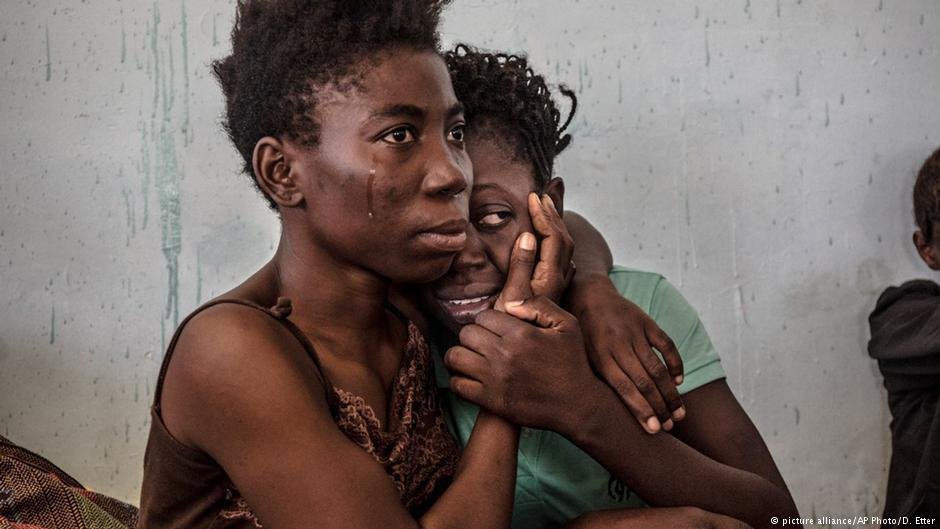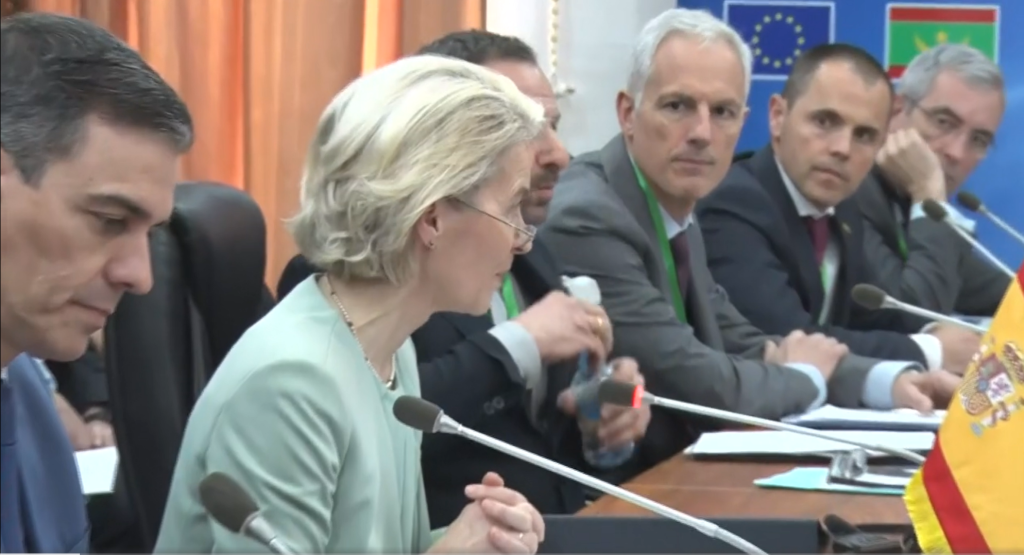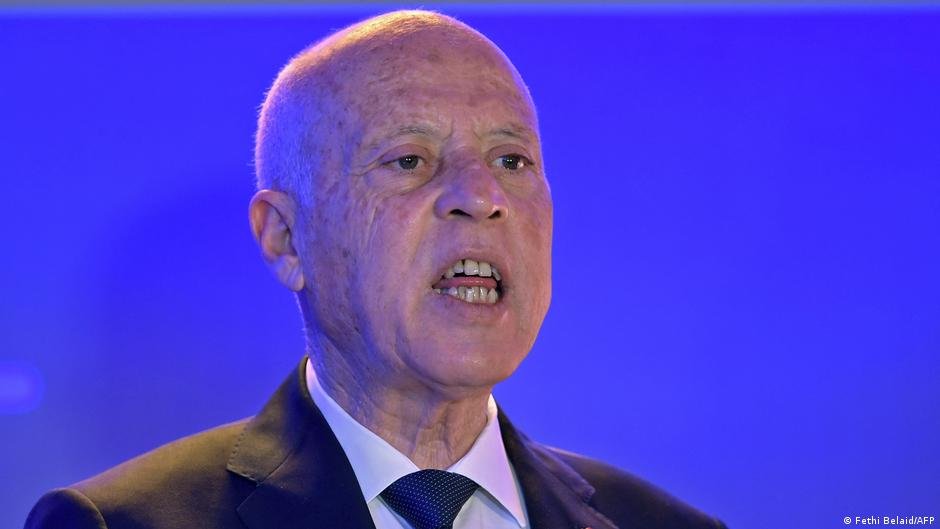In a new investigation led by Lighthouse Reports, journalists have found that each year, the EU "supports, finances and is directly involved in clandestine operations in North African countries" that result in tens of thousands of people being abandoned in the desert or other remote areas. In response, the European Commission stated that no European money funds these incidents while acknowledging it's a "difficult situation."
The document published by Lighthouse Reports says that these operations are in theory devised to prevent the people from coming to the EU and to disincentivize others, emphasizing in the first paragraph of the report, however, that the majority of those suffering this fate are Black.
Titled "Desert Dumps," the Lighthouse Reports documents claims that these activities are conducted under the guise of "migration management" measures.
Targeted for the color of their skin
The dossier took one year to compile and was created in collaboration with several other media organizations including the Washington Post, Der Spiegel, El Pais, ARD and Le Monde, among several others.
Focusing on case studies in Morocco, Mauritania and Tunisia, the reports claim that these "desert dumps" are chiefly driven by race, saying that people were "apprehended based on the color of their skin, loaded onto buses and driven to the middle of nowhere, often arid desert areas."
"There, they are left without any assistance, water or food, leaving them at risk of kidnapping, extortion, torture, sexual violence, and, in the worst instances, death. Others are taken to border areas where they are reportedly sold by the authorities to human traffickers and gangs who torture them for ransom," the report reveals.

Human rights abuses against migrants, in particular from sub-Saharan Africa, in North Africa, including in Libya and Algeria, are well documented. However, until now there were no allegations of the European Union being directly or indirectly involved in such abuses.
Lighthouse Reports claims that its joint investigation amounts "to the most comprehensive attempt yet to document European knowledge and involvement with anti-migrant, racially motivated operations in North Africa," adding that the EU knowingly funds such activities.
The EU meanwhile has thus far been steadfast in claiming that it does not fund human rights abuses against sub-Saharan African communities in North Africa, and that it closely monitors how its money is spent.
Also read: Expulsions in Algeria: 11 migrants died of thirst in desert, Alarm Phone Sahara says
Forcibly removed from Mauritania
In Mauritania, the team collected video footage of a group of Black migrants, mostly men, being rounded up on the back of a lorry and taken to a detention center in the capital, Nouakchott.
They are alleged to have been processed at that facility, which one female victim says involved the removal of their mobile phones, so they would not be able to contact relatives.
Hours later, a different vehicle — this time a bus — is seen leaving the same facility, alleged to have traveled almost 1,000 kilometers east to the border of Mali, which is known for violent insurgent activity. These events were also substantiated by the same eyewitness.
"We witnessed and filmed refugees and migrants being brought to the centre in a large truck and Spanish police officers entering the detention centre on a regular basis," Lighthouse Reports claims in the dossier.

Lighthouse says it also obtained confidential files from the Spanish government, which allegedly highlight how Mauritanian forces are paid to conduct these activities, adding that by now, hundreds of individuals suffer this fate of being bussed to the border with Mali and dropped in the middle of what it refers to as a "war zone."
Also read: EU launches migration partnership with Mauritania
Indiscriminate violence in Morocco
In Morocco, the team on the ground followed a number of smaller vehicles, typically vans, patrolling the capital city, Rabat. Here too, a pattern appears to emerge of officials arresting people of color in a largely indiscriminate manner.
A 25-year-old eyewitness from Guinea named Lamine told Lighthouse Reports that security officers won't hold back with using violence against the Black people they apprehended -- even when unprovoked.
Each day, at least one busload of people are taken down about 150 kilometers south to one of the more remote parts of Morocco. The team, however, identified several other such dump sites in the country located in even more remote areas.
Another victim in Morocco told reporters that Morocco's policy can actually even go against efforts to curb migration: Ahmed from Guinea said that he was apprehended just as he was in the middle of signing papers to commit to a voluntary return to his home country under the IOM return program.
Also read: Morocco's mounting role as EU-migration gatekeeper
Dying of thirst in Tunisia
Perhaps the most shocking practices were recorded in Tunisia, where the proactive interception of Black migrants earmarked for a so-called dump site begins at sea.
Lighthouse Reports and partners also highlight the case of one victim, who was intercepted by the Tunisian coast guard at sea during an attempt to cross the Mediterranean to Italy.
Barely returned to the mainland, he was taken to the opposite end of the North African country near the Algerian border alongside several others on a bus, as substantiated by GPS coordinates logged on his mobile phone.
"After nine days of walking, his group finally reached the village of Tajerouine," the dossier explains, desperate to find water and fearing they would die of thirst.
His group reportedly included two pregnant women and a child so badly beaten that he could not walk at the time.
Lighthouse Reports said that it confirmed that at least 14 such collective dumps "usually involving dozens of people" have taken place in Tunisia in the past year alone amid a surge of xenophobia and racism.

Tunisian President Kais Saied, regarded as an autocratic ruler both within his country and abroad, has repeatedly expressed his disdain towards migrants, showing more than reluctance to cooperate with European powers to hold migrants back from reaching European shores.
The evidence uncovered by Lighthouse Reports, however, suggests otherwise.
Also read: Tunisia: Accusations of clearances and expulsions
Substantiating a bold claim
The team behind the investigation says it interviewed more than 50 survivors of such instances of forced expulsions across Mauritania, Morocco and Tunisia, highlighting that they were all people of color from Sub-Saharan Africa or from West African countries.
Using visual material provided by those interviewed as well as location data from their journey, the team were able to piece together information to support the accounts given by the alleged victims.
The team also spoke with current and former EU staff, as well as with security personnel in those three countries, saying that this helped to establish "that the EU is well aware of the dump operations and sometimes directly involved."
Finally, Lighthouse Reports and partners also made use of freedom of information laws in Europe to obtain a series of internal documents to substantiate their claims and also employed leaked files to make its case against the EU.
These included files from the EU's external border agency Frontex published earlier this year, which say that Morocco was involved in racially profiling and forcibly relocating mainly Black migrants.
To further stress the involvement of the European Union in these violent activities, the Lighthouse Reports team also compared existing data with its own observations on the ground.
For example, it ascertained that in Tunisia, the Nissan-brand vehicles used by the National Police in raids to arrest migrants are a match to those donated to the Tunisian government by Italy and Germany to curb migration to Europe.
In the past decade, Tunisia, Morocco and Mauritania combined have received nearly 1 billion euros from the European Union to fight irregular migration, with pledges made for more funds recently.
Also read: EU signs controversial migration agreements in Africa
Careful responses from Brussels and beyond
The European Union meanwhile has responded to the allegations highlighted by Lighthouse Reports and partners, saying it would look deeper into the claims.
"This is a difficult situation. It's a fast-moving situation, and we will continue to work on it," European Commission spokesman Eric Mamer told reporters when questioned about the investigation, according to the French news agency, AFP.
European Commission spokeswoman, Ana Pisonero, also responded, acknowledging that "(s)ometimes the situation is challenging in our partner countries ... (but they) remain sovereign states and they continue to be in control of their national forces."
She added the EU routinely monitored the programs it provided funding for, and stressed that partner countries had to pledge to uphold international law and human rights.
However European Commission Vice-President Margaritis Schinas came out in clearer tones, publicly stating: "No European money funds this type of incident."
Reactions from individual EU member states have been slow to come forward, however, Germany's Federal Ministry of the Interior stated that it attaches great importance to ensuring that humanitarian standards and the human rights of refugees and migrants are respected in all its endeavors.
"This is also a regular topic of our discussions with the Tunisian side," the ministry emphasized. German Federal Police have been in charge of training and equipping the Tunisian National Guard since 2015.
Also read: EU criticized over migration deal with Egypt
with Lighthouse Reports and AFP
